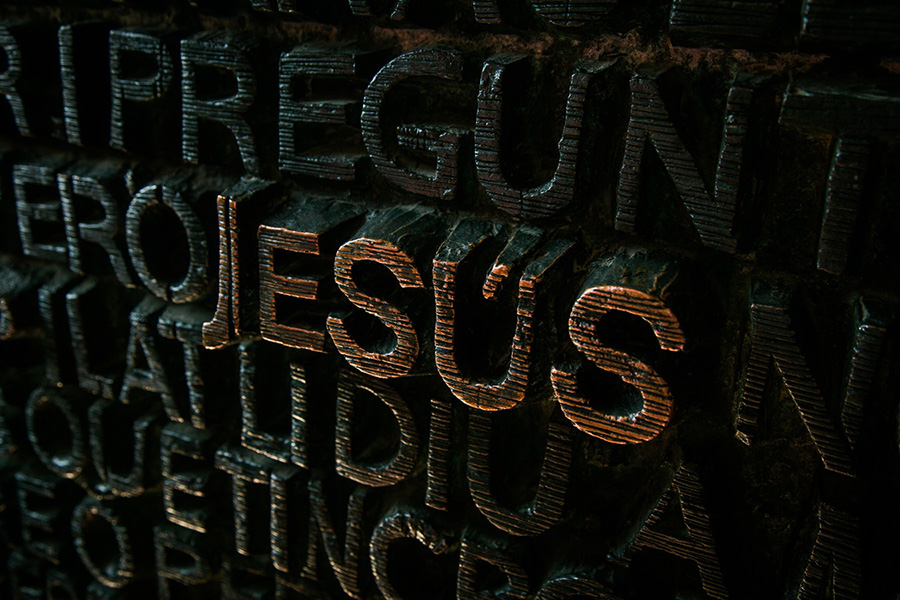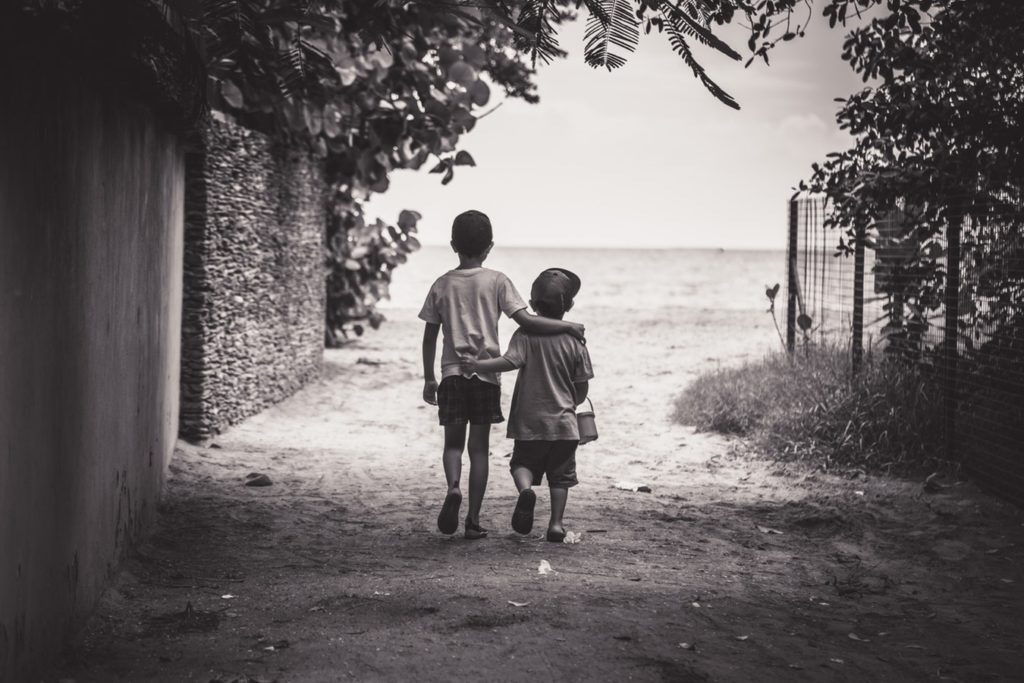July 31, 2022
The Rev. Marianne Wells Borg
Trinity Episcopal Church, Bend, Oregon
Luke 12: 13-21
“Teacher, tell my brother to divide the family inheritance with me.”
In Roman Law an heir (presumably the eldest legitimate son) inherited all rights and duties of the deceased. All of them. Wealth and debts. There could be more than one heir. But the distribution would be decided by the first heir not the deceased. So someone in a crowd that Jesus attracted wanted Jesus to persuade his older brother to share the family inheritance with him.
Our inheritance laws are derived from the ancient Roman Empire. And then as well as now reliable inheritance laws are considered essential for social stability. Perhaps more accurately the stability of social standing.
So the man in the crowd recognized Jesus as a teacher, a rabbi, who would know the law. And thought who better to have on your side of an inheritance issue than Jesus.
Luke has Jesus respond to the man: “who set me to be a judge or arbitrator over you?”
We tend to call Jesus Lord or even Master. But Jesus does not proclaim himself as Lord or Master over any of us. We say that he is. But he does not say that about himself. Not here nor elsewhere in the Gospels. And we often make God our Judge as well. Many Gospel stories do the same. But I don’t see God as a judge. As if God were some super being up there out there somewhere whose primary task is counting our failings. This is a common image of God. And an unfortunate one. What we do has consequences. No doubt about that. And consequences determine their own outcomes. But to see God as Judge or Jesus as Judge is punitive and punishing and frightening and I don’t think worthy of the name of either God or Jesus. The name of God has more to do with possibilities than punishment. And Jesus is a visionary of possibilities. Not an arbitrator.
I consider Jesus our companion. Jesus walks the way with us. This is not literal language. But people throughout the centuries have had the experience of Jesus walking the way with them. I have. I do. And my hunch is many of you have too. And there are others here who long for that experience. The language of Jesus walking the way with us cannot really contain the experience it is trying to express. But it comes close. Understanding language about Jesus in this way, I also say he guides us, he teaches us, he heals us. All in the present tense. And if we consider him a savior let us understand he saves us from ruined time and a fearful life. Because he shows us another way to live here and now.
Jesus in this story today is not a judge. Or arbitrator. He is a teacher. A wisdom teacher. Which is very different from conventional teachers. Conventional teachers tend to give advice or tell us what to do or what to think and define for us what is possible and impossible. Jesus helps us think, see again, reimagine, consider possibilities that show that things can be different. He presents an alternative way. So we can continue on our path with a different trajectory or start again. Jesus’ wisdom teaching is a counter weight to the way things are. A counterweight to a default reality that constitutes “this world.” A counterweight to the “conventional wisdom” that tends to serve those who run the show and stabilize social standing.
Jesus is a dreamer, a visionary, a poet and challenges us to think that what might seem impossible or unthinkable according to conventional wisdom is really possible. And the method to Jesus’ madness is the parable.
The parable is a kind of story It is indirect. It tells a truth but tells it slant. Jesus’ parables don’t provide ready answers but changes things up and reframes the situation leaving his hearers frustrated and wondering. Parables and Jesus himself are counterweight to the default assumptions that constitute the conventional wisdom of this world.
So when the man in the crowd asks Jesus a question about inheritance Jesus isn’t going to answer directly. He is going to reframe the situation. And challenge us to think differently.
One more thing about parables before I reflect a little on the parable today.
Jesus’ parables are about the kingdom of God. They are not moral tales. They are not about God per se. They are about the kingdom of God. They describe a way to think and consider and reframe a situation from the perspective of the kingdom of God. Which is in sharp contrast to what in Jesus time was called the kingdom of Caesar. Or what today we might call Empire or what Dom Crossan calls “the normalcy of civilization.” This is not meant to be pejorative about culture. Rather it describes the common, seemingly normal, way we go about our dealings in the world, “this world.” It is our default reality.
In brief, “this world” and its conventional wisdom, is about winners and losers, us and them, who’s in or out, worthy or not, and its economies of exchange whether personal, social or economic, are calculations of investment and return. The kingdom of Caesar or the normalcy of civilization is less concerned about an unknown future to come than what we can reap today or calculate for our best interest in the near tomorrow. The normalcy of civilization is commodity driven and doesn’t know when enough is enough. Such a world is based on fear, and suspicion, and distrust and self interest. These are the things that shape strategies and motivations. All very familiar to us. Hence normal. The default reality. The taken for granted way things are. And default realities tend to win out. Because they are the default.
The kingdom of God is a very different way of being in the world. The kingdom of God let me remind us is not a place. It is a way of being and living and perceiving and acting. The kingdom of God unlike its rival is built on trust. And a vision for the common good and what is required for a common shared future that is yet to come. The kingdom of God is built on a commitment to social responsibility. Driven by compassion and doing justice, loving kindness, walking humbly. There’s a bit of that here and there in normalcy of civilization as well. But the default position of the kingdoms of “this world” are fear and distrust and self-interest. And even self-hatred. Those things structure our common life. The kingdom of God structures or builds love and compassion and justice and the necessity of common good for all.
So parables, being about the kingdom of God, set up a different way of approaching a situation. The situation today is about inheritance. And Jesus changes the frame. Widens it.
A rich man has an abundant crop. A remarkably abundant crop. This harvest exceeded all his expectations. What should I do? The rich man asks himself. So he answers himself, “I will pull down my barns and build larger ones.” This harvest deserves something bigger and better. And then he says to himself, “And there I will store all my grain and my goods.” And then he says “I have ample goods laid up for many years.” So I can “relax, eat, drink and be merry!”
Well, this rich man is a lucky man indeed. He might even be considered a righteous man. Popular conventional wisdom says “the righteous shall prosper.” (That’s conventional wisdom I remind you, not the wisdom of Jesus.)
The story, the parable goes on. This man then dies in his sleep. So much for his plans for himself.
And then the question: “the things you have prepared, whose will they be?”
The man in the parable was talking about “me” all the time. I will do this and that. (And the man from the crowd wanted to know about his share of the inheritance as well. We can understand that.)
But Jesus changes the frame. Jesus shifts concern for personal, individual inheritance and considers “inheritance” more broadly: what we leave to a future that is yet to arrive. A future we cannot be part of. A future that does not include us. What about a future that cannot include us?
Jesus’ concern is our social responsibility for a future that comes after us. This is a kingdom of God concern. To personalize the name of God here, God cares about history. God cares not only about the past and the present but the future. God cares about history. And what is to come. God’s cares about the kingdom of God, how we live in a manner worthy of the name of God itself.
But the kingdom of God is not a replacement. It is a counterweight. This may be a different way to think about the kingdom of God than we are conventionally taught. Conventionally we think the kingdom of God as something that is going to come down from on high, ready-made, and usher in a new age. Well, it may usher in a new age but it comes into existence only by the way we live and love one another and care for one another and care for the future we can’t see coming. The kingdom of God is counterweight to the default reality that is the kingdom of Caesar, empire, the normalcy of civilization. It is an alternative vision of what is possible for our life together. A future that can be better. Because we will make it so. We are responsible for the kingdom of God now and for a future where it can continue.
God so loved the world. Do we so love this world and the precious gift of life that we want future generations to be part of this earthly life also?
Or are we so captive to ideas of bigger, better, more – for you and for me — so mesmerized, hypnotized by fearful narratives, so distrustful of one another, and so cynical about humankind and even God that we are at the point where we think things will never really change and we can’t really make a difference. We’ve gone too far. It’s really too late. The future looks wrecked. So I will look after myself now. What else is there to do? That’s the dread of “this world”, the assumptions and calculations of the normalcy of civilization. Which hover around us like a raptor seeking carrion comfort.
I don’t think it’s too late. It’s late. But it’s not too late. Because even today I have experienced the kingdom of God. Yes, today. Do you not perceive it? There is an angle of vision, an angle of vision where you will.
I look at you this morning and I say the hope of the kingdom of God is alive. Because it is in you. It is in us together. We come together even if remotely because of the kingdom of God. A vision that stirs in us the hope that things can be different. It is our own deeply embedded hope – which I suggest is God within us — and our deeply intuitive longing for openness – which I say is God within us — that knows we are part of the history of God. You are part of the history of God. And only our actions will determine if future generations will say there was God. And a kingdom God.
We are people of hope. Our hope is a hope within a horizon of trust. Hope within a horizon of trust. It is our conviction that the deep structure, the deep structure of that in which we live and move and have our being is life and a future of possibilities more than we can ask or imagine. The things we have prepared. Things we are preparing. What are those things. Whose will they be? May we and those who come after us be worthy of the gift of life given us. That’s not a judgement. That’s a call.



